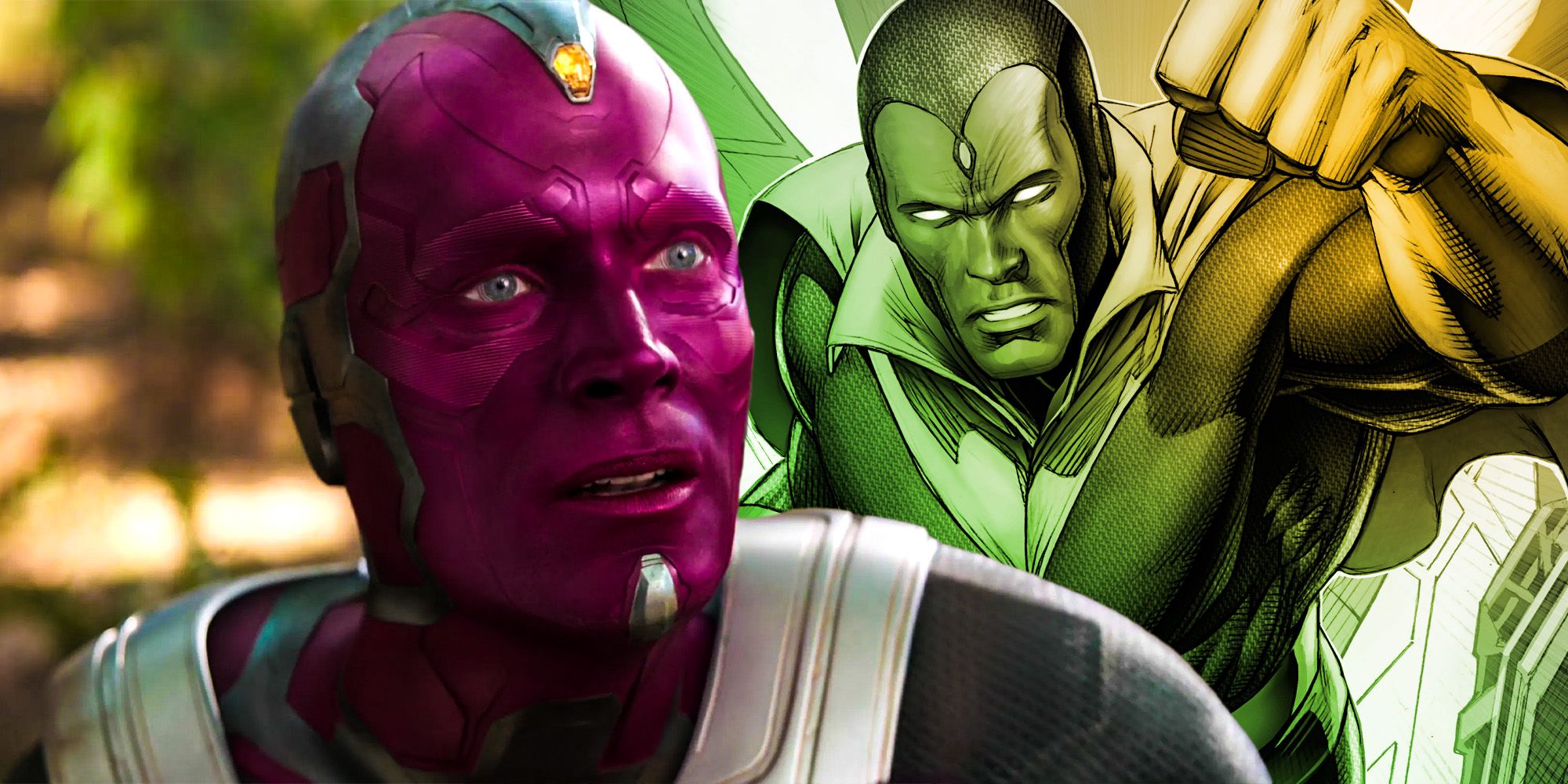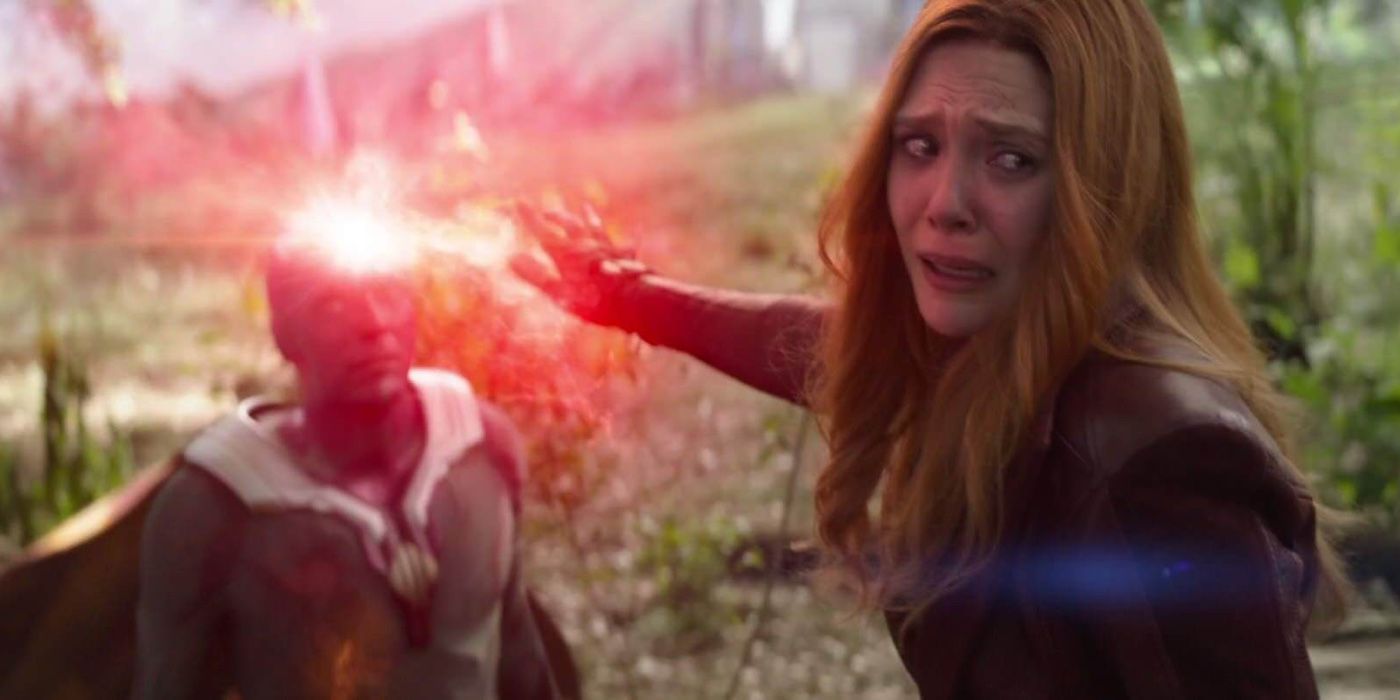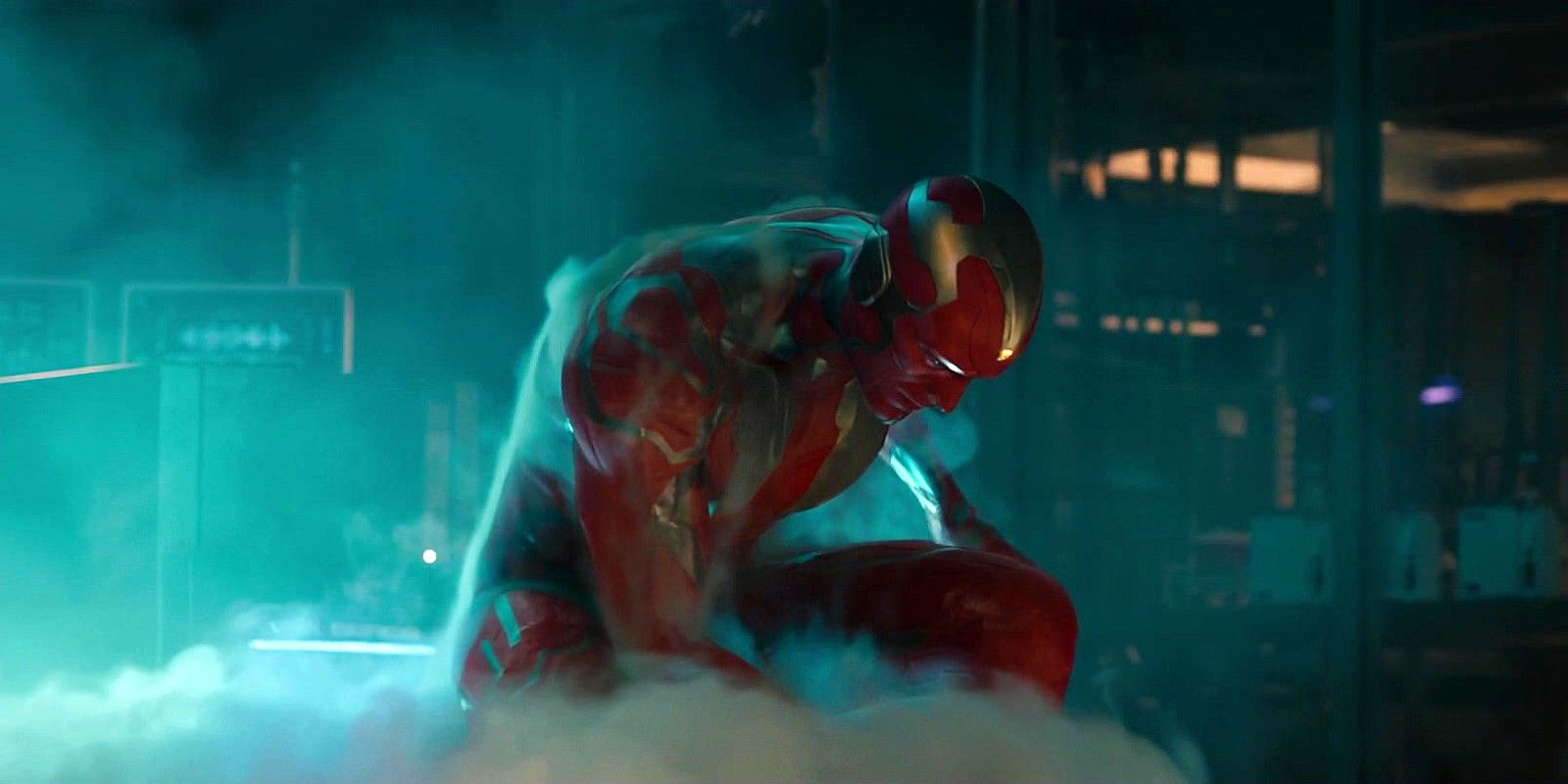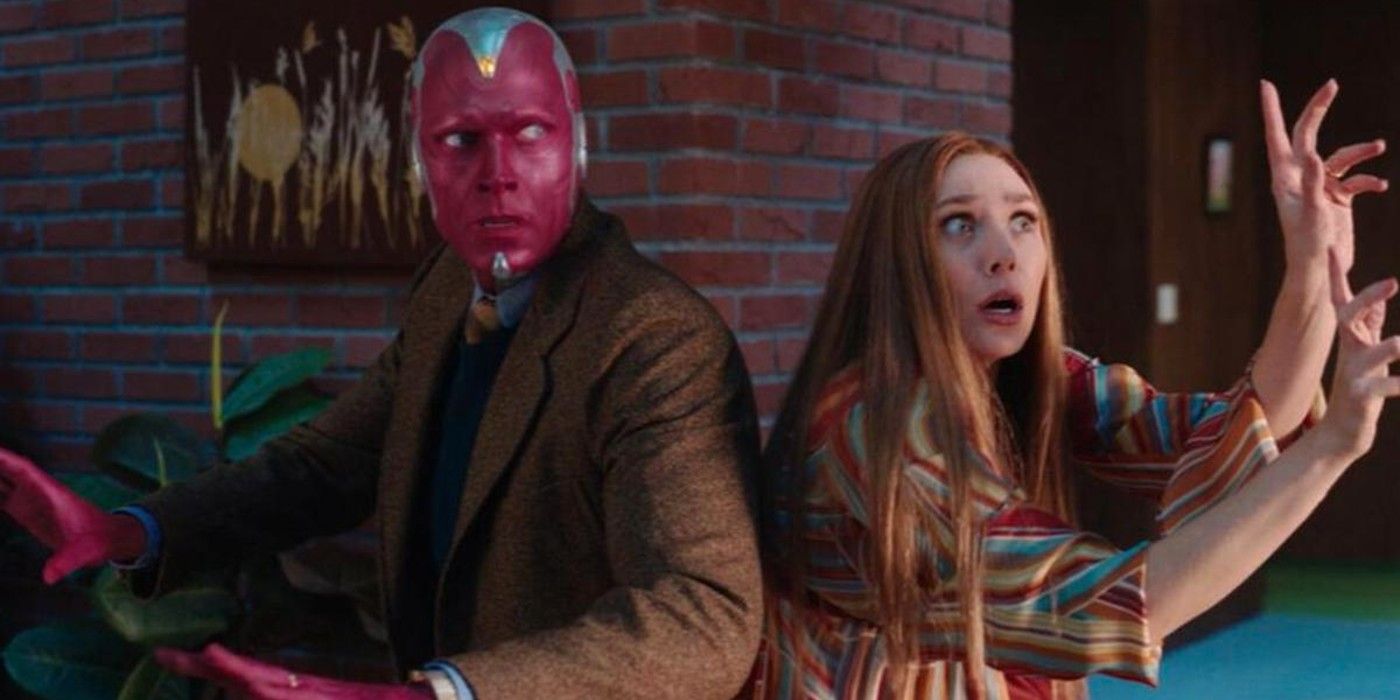The Vision first appeared in Marvel Comics in 1968 and has been a mainstay of The Avengers ever since. Throughout, Vision has been a rather cold and calculated hero, believing himself to be superior to his peers as a result of his computer-like capabilities. The Marvel Cinematic Universe's version of the synthezoid, however, is much more humble and moral, making for a better version of the character.
Vision made his MCU debut in 2015 in Avengers: Age of Ultron. His synthetic body was created by the villain Ultron via the Mind Stone, but was eventually used by Tony Stark to host the J.A.R.V.I.S. software. Despite uncertainty regarding where Vision would align himself, he ultimately sides with the Avengers and helps them defeat Ultron. This origin is not entirely unlike his backstory in the comics, where Ultron creates Vision in order to defeat Hank Pym and Janet van Dyne. The comic book version of Vision is ultimately convinced by The Avengers to turn on his creator.
From the outset, Vision's relationship with other heroes is rather rocky in the comic books. He is constantly under surveillance by his peers and even foreign powers, as there is a lingering concern that he will turn on The Avengers. Obviously, the chemistry between Vision and other Avengers is similarly strained, with Vision often proving himself to be superior to others in terms of power and intelligence. But that said, onscreen, Vision is much more likable; his ego is not inflated as a result of his creation and rather, he is humbled and remains endlessly indebted to humanity and his fellow heroes.
How Vision's Sacrifice In Infinity War Changes Him From The Comics
Of course, Vision is perhaps most immediately associated with his heroic endeavor in the final act of Avengers: Infinity War. As Thanos arrives in Wakanda to retrieve the Mind Stone from Vision's forehead, Vision urges Wanda Maximoff to destroy the stone and him along with it, sacrificing himself to stop Thanos. While Vision's efforts may have been in vain, his intentions remain highly noble. He owed nothing to humankind, having been created by them as a weapon and having seen nothing but destruction ever since. And yet, Vision embraces his role as a pawn in humanity's existential conflicts and allows himself to be sacrificed as a result. This trait seems to be what allowed Vision to lift Mjolnir in Age of Ultron as well.
In the comics, Vision remains particularly prickly regarding that very issue. He resents any attempt to weaponize his powers and is highly concerned with his own agency. It's a perfectly understandable perspective, but it often leads to an antagonistic relationship between Vision and his fellow heroes. The MCU now offers a version of the character that is consistently good, even when it may come at the cost of his own independence.
MCU Vision Is More Aware Of The Threat Of His Existence
That is not to say that the MCU's Vision is entirely static, of course. In Captain America: Civil War, for example, Vision draws attention to the complicated and dangerous nature of his own existence. Throughout the 2016 entry into the MCU, Vision is torn between his different allegiances. He is still largely new to the world, and yet he must already pick a side in the Avengers' split. Even worse, he must betray his one shred of certainty: his budding love for Wanda. Vision traps Wanda in the Avengers' compound, as he believes she is too powerful to operate without the governmental oversight for which Tony Stark is fighting. This decision serves as a chilling reminder of Vision's perspective. He is a computer who is slowly becoming human, and he has to somehow balance these two competing ways of thinking.
Towards the end of Civil War, Vision's growing sense of humanity proves costly, as he accidentally injures War Machine whilst tending to a wounded Wanda. This moment irrevocably changed the life of James Rhodes, and marked some of the broader dangers presented by a synthezoid like Vision. Neither Vision nor The Avengers ever truly reckoned with the event, as the arrival of Thanos presented an even larger and more immediate threat to the universe. In fact, the MCU's Civil War never really resolved itself. Now, a show like Armor Wars may provide an appropriate space to continue the legacy of Civil War, and perhaps even resolve some of the unspoken tension between Vision and Rhodes, upon whom the upcoming Disney+ series will focus.
Of course, the MCU's Vision is currently very busy, if he even exists at all. While the character has been a fan-favorite for years now, the ongoing Disney+ series WandaVision is arguably the most complex onscreen iteration of the character thus far. Vision's troubled role in War Machine's injury in Civil War may not have garnered the synthezoid much controversy amongst his peers, but his idyllic life alongside Wanda in Westview seems poised to dig up elements of both characters' pasts nevertheless. After all, Vision, who WandaVision now refers to as "The Vision," only arrived in Westview after Wanda kidnapped his deactivated corpse. The exact nature of Vision's existence remains murky, but it is clear that he and Wanda will both have to reckon with their previous actions as their altered reality begins to crumble.
How Vision Compares To His Best Comic Book Iteration
Vision is slowly beginning to unravel the surreal nature of Westview, which has only further contributed to the greatness of the character onscreen. This version of Vision, however, has a somewhat similar counterpart in the comics. Tom King's 2016 series The Visions introduced the character alongside a family of other synthezoid characters as they try to build a quiet suburban life and outrun their pasts. Particularly as the series eventually converges with Vision's romantic history with Scarlet Witch, it's safe to say that WandaVision takes inspiration from King's work. Still, King's series maintains a rather dark tone throughout, lamenting its central family's inability to blend in with its human neighbors. They are robots, but even worse, they are monsters.
King offers what is easily the most compelling comic book iteration of Vision, but the MCU's take on the character remains superior. In WandaVision, Vision may be skeptical of his situation, but he remains a moral and loving man. He risks his own life to save those trapped in Westview, but still manages to be a caring and supportive father to his two sons, the twins Billy and Tommy. The Vision may be one of a few MCU heroes supposedly devoid of humanity, but he ultimately makes the right decision every time, demonstrating a rare and admirable sense of morality every step of the way.










